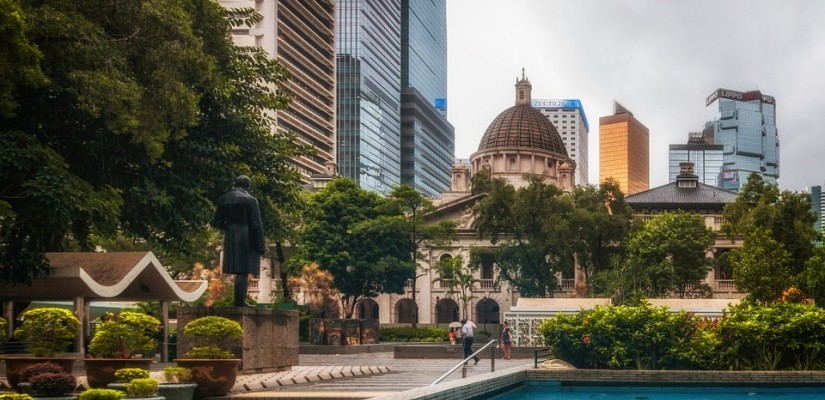When Hong Kong’s government announced that it would introduce a new law permitting the extradition of suspects and criminals to mainland China, Macau, and Taiwan, masses of people in Hong Kong marched in the streets in protest. On April 28, 2019, protest organizers counted 130,000 people in the demonstrations, though the police reported only 22,800 people. This protest was the largest pro-democracy outcry since the 11-week long Umbrella Movement in late 2014, which started after the government in Beijing attempted to establish a pre-screening process for electoral candidates in Hong Kong’s autonomous government. Arguing that Hong Kong is becoming a safe haven for fugitive criminals, Hong Kong’s pro-Beijing Chief Executive Carrie Lam did not grant amendments to the new extradition law despite the efforts of Hong Kong’s Bar Association to revise parts of the bill.
The new extradition law would grant Hong Kong the authority to decide which suspects to hand over to Taiwan, Macau, and mainland China on a case by case basis. The law was put forward after 19-year old Hong Kong citizen Chan Tong-kai fled Taiwan after allegedly murdering his 20-year-old girlfriend during a vacation on the island in February 2018. Officials in Hong Kong were unable to extradite the man due to the lack of legal regulation pertaining to this issue.
Citizens of Hong Kong showed strong disapproval of the development over concerns that this law gives China greater power to detain government-critical voices and human rights activists. Hong Kong-based bookseller Lam Wing-kee, who was abducted and charged with illegally operating a bookstore by Beijing’s government after selling books critical of China’s authorities in 2015, would be one of the first to leave Hong Kong before the law takes effect. He fears that protection from Chinese prosecution will not be guaranteed.

Although Hong Kong’s authorities claim that only offenses such as rape and murder will result in extraditions, critics question whether other crimes such as tax evasion, political offenses and religious crimes will be grounds for future extradition as well. This question concerns the Hong Kong business and human rights communities in particular since pressure from mainland China may change the minds of Hong Kong’s authorities in regard to potential extraditions. The government of Hong Kong has committed to extradition agreements with the United Kingdom, the United States, India, South Korea, Australia, and several other countries, but has not signed a deal with mainland China thus far. Protesters in Hong Kong fear unfair trials, arbitrary arrest, torture, and capital punishment in mainland China. China retains the use of the death penalty, whereas capital punishment was abolished in Hong Kong in 1993.
The risks to Hong Kong’s autonomy have been gradually increasing. While Hong Kong’s status as special administrative region has a due date, the territory will not officially fall under mainland China’s jurisdiction until July 1, 2047. Hong Kong was released from British rule and granted autonomy of its government, its economic and legal system — including freedom of speech, press, association, and religious worship — after Britain and the People’s Republic of China signed the ‘One Country, Two Systems’ agreement in 1997. According to the arrangement, Hong Kong will be fully integrated into China’s system after 50 years of independence. In the 1990s, Beijing’s government respected this right, but after economic hubs in mainland China started prospering and rivaling Hong Kong’s economic strength, Beijing began making advances on Hong Kong’s autonomy.
Further efforts include an attempt to implement Article 23 of Hong Kong’s Basic Law under the National Security Bill of 2003, which was met with strong resistance from the people of Hong Kong. The legal regulation never took effect, but had it done so, it would have prohibited revolutionary acts and acts of treason against the government of the People’s Republic of China. While protesters in Hong Kong resisted such changes to maintain democracy and free speech, large-scale demonstrations such as the Umbrella Movement in 2014 harmed businesses in Hong Kong whose operations temporarily suffered from the ongoing demonstrations. Even though efforts to preserve Hong Kong’s independent government are expected to continue in the future, Beijing’s grip on the special administrative region continues to tighten.
